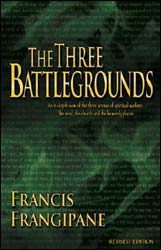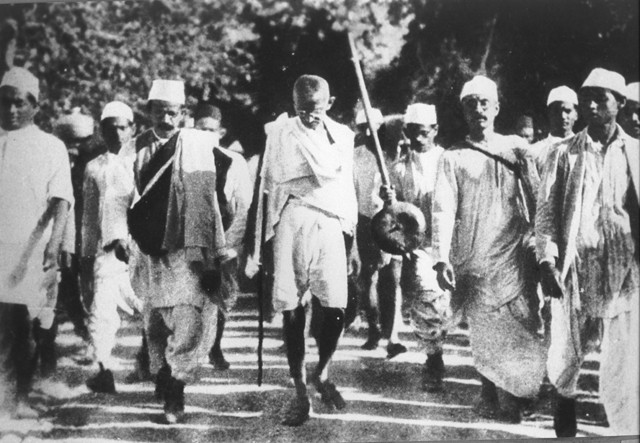The Three Battlegrounds
 I read The Three Battlegrounds a few years ago, at the recommendation of my former worship pastor, and this week I’ve read it again with pleasure. It’s a concisely written book, refreshing in the clarity it brings to the issue of spiritual warfare in three main areas: the mind, the church, and the “heavenly places” — a term that has three meanings in Scripture but that in this book stands for “the spirit realm which immediately surrounds the consciousness of mankind.”
I read The Three Battlegrounds a few years ago, at the recommendation of my former worship pastor, and this week I’ve read it again with pleasure. It’s a concisely written book, refreshing in the clarity it brings to the issue of spiritual warfare in three main areas: the mind, the church, and the “heavenly places” — a term that has three meanings in Scripture but that in this book stands for “the spirit realm which immediately surrounds the consciousness of mankind.”
Like (perhaps) many evangelicals, I’m hesitant about the idea of “doing warfare.” I see the episodes in the Bible where Jesus and his disciples cast out demons, calling them by name. But I think my fear is of the human extremes a preoccupation with spiritual battle can lead to — a sort of “demon under every bush” syndrome. Francis Frangipane discusses the issue plausibly and (for the most part) biblically, cautioning that the goal is Christlikeness, not warfare:
Jesus defeated Satan in Gethsemene and the cross, not by directly confronting the devil but by fulfilling the destiny to which he had been called at Calvary. The greatest battle that was ever won was accomplished by the apparent death of the victor, without even a word of rebuke to His adversary! The prince of this world was judged and principalities and powers were disarmed not by confrontational warfare but by the surrender of Jesus Christ on the cross.
That being said, I acknowledge that I was not comfortable with some aspects of this book. While I very much appreciated the discussion of the mind and the church (more on that below), the last section, where Frangipane discusses pulling down strongholds over whole communities and churches, raised questions for me. I may be forgetting, but offhand I can’t think of instances in Scripture where this is done. In all the cases I can think of, Christ’s kingdom advances through individuals, through the preaching of the Word, or through individual deliverance or repentance. And I’ve been struck before by how the passage in Ephesians about the armor of God exhorts us, after putting on all the various pieces of armor, merely to “stand.”
The parts I did find illuminating had to do with the way our minds can be influenced by “principalities and powers.” We can harbor belief systems contrary to what the Bible teaches about who we are in Christ. The Three Battlegounds teaches that while Christians cannot be possessed by demons, we can find ourselves giving assent to systems of thought that provide “rest” for spiritually destructive tendencies. “These concepts and limitations are structured into us from childhood, built into our thinking patterns through the words and ideas of others,” writes Frangipane. “Many of our opinions about life are ours only because we know of no other way to think. Yet, we defend and protect our ideas…” Frangipane’s discussion of how to dismantle and rid ourselves of these systems, replacing them with biblical truth, is very clear and useful.
I also really liked the section describing the gift of discernment, and the importance of wielding it in love and not a critical spirit. “The beginning of true discernment will not come until we crucify our instincts to judge,” we’re told. “This takes many months, and usually years, of uprooting thought-systems that have not been planted in the divine soil of faith and love for people.” There is plenty of practical, insightful wisdom in this chapter.
As Christians, we’re quick to give assent to the concept that we live in a cosmos at war, one in which the decisive battle has been fought and won at Redemption, but in which the conflict has not been ended once and for all. This is the era of betweenness, and I don’t pretend to have a deep understanding of these things. But this book, though I couldn’t fully agree with all aspects of it, helps to shed some needed, clarifying light on them.


